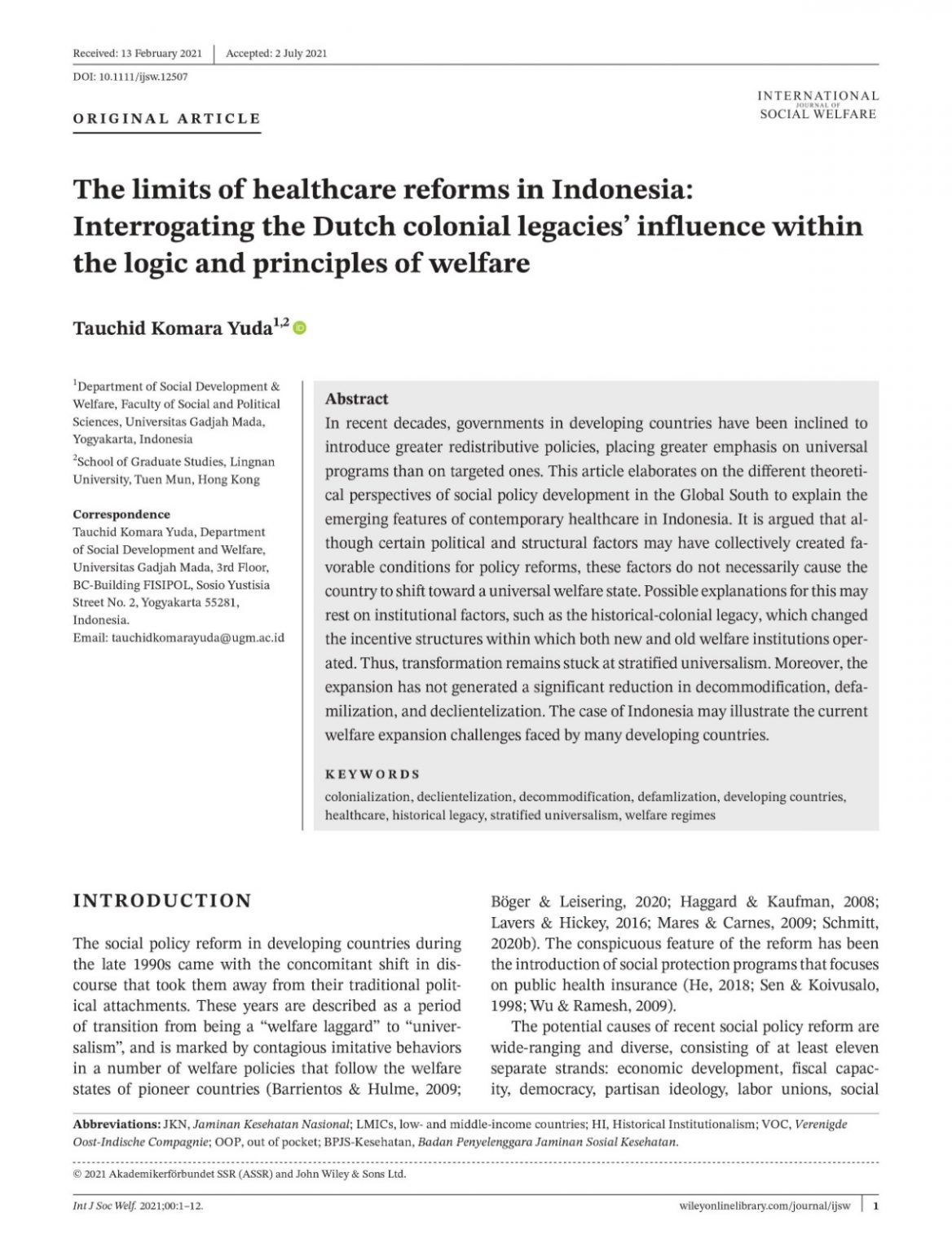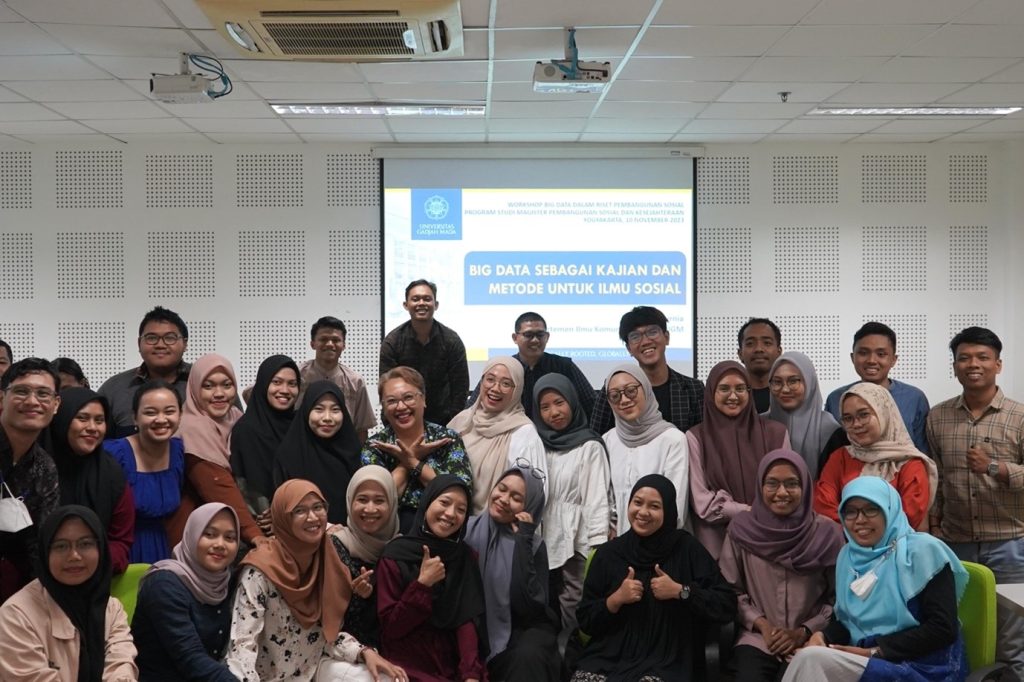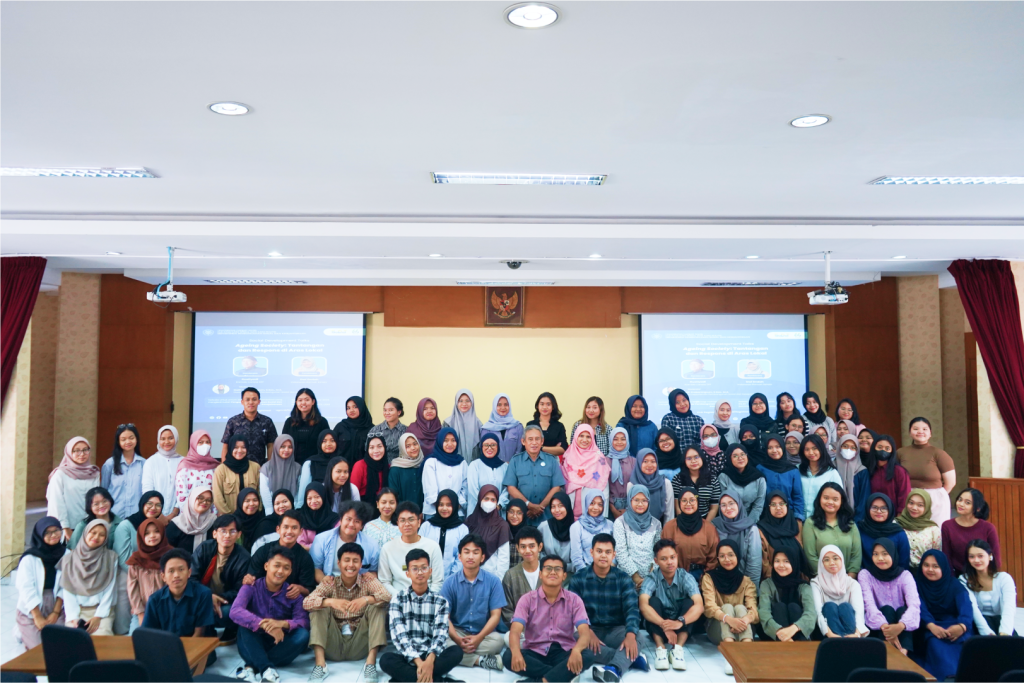Tauchid Komara Yuda
International Journal of Social Welfare, 2021
Page 1-12 | Published online: Agustus 2021
Abstract
In recent decades, governments in developing countries have been inclined to introduce greater redistributive policies, placing greater emphasis on universal programs than on targeted ones. This article elaborates on the different theoretical perspectives of social policy development in the Global South to explain the emerging features of contemporary healthcare in Indonesia. It is argued that although certain political and structural factors may have collectively created favorable conditions for policy reforms, these factors do not necessarily cause the country to shift toward a universal welfare state. Possible explanations for this may rest on institutional factors, such as the historical-colonial legacy, which changed the incentive structures within which both new and old welfare institutions operated. Thus, transformation remains stuck at stratified universalism. Moreover, the expansion has not generated a significant reduction in decommodification, defamilization, and declientelization. The case of Indonesia may illustrate the current welfare expansion challenges faced by many developing countries.
Yuda, Tauchid Komara. “The limits of healthcare reforms in Indonesia: Interrogating the Dutch colonial legacies’ influence within the logic and principles of welfare”. 2021. dalam International Journal of Social Welfare, h. 1-12. Agustus 2021.
Sumber publikasi jurnal dapat diakses melalui tautan berikut.






